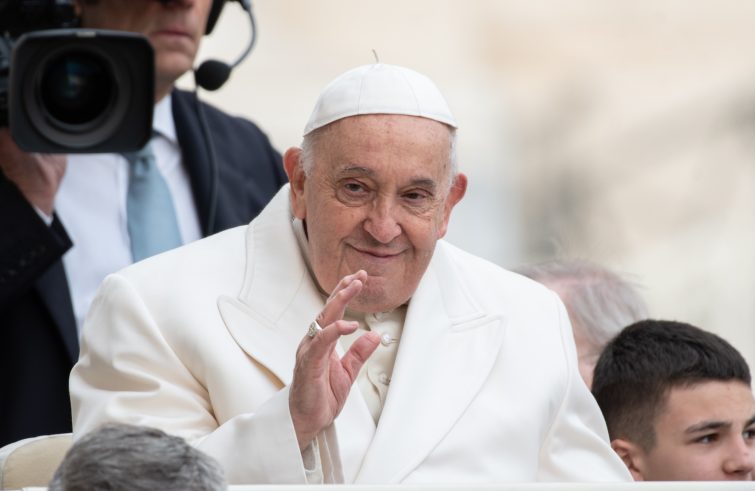
“A Christian without courage, who does not turn his own strength to good, who does not bother anyone, is a useless Christian,” Pope Francis told the faithful gathered in St Peter’s Square on Wednesday for the weekly General Audience dedicated to fortitude, “the most combative of all virtues.” “My thoughts go to the martyred Ukraine, to Palestine and Israel,” he said at the end of the audience, in his greetings to the Italian-speaking faithful.
“May the Lord give us peace, war is everywhere!”,
the Pope’s plea: “Let us not forget Myanmar. But let us ask the Lord for peace.” “And may we not forget these brothers and sisters of ours who suffer greatly in these war-torn places”, the final appeal: “Let us pray together and always for peace.”
Fortitude “strengthens the resolve to resist temptations and to overcome obstacles in the moral life. The virtue of fortitude enables one to conquer fear, even fear of death, and to face trials and persecutions,” Francis went on to explain in his Wednesday catechesis: “While the first of the cardinal virtues, prudence, was primarily associated with human reason; and while justice found its abode in the will, this third virtue, fortitude, is often linked by scholastic authors to what the ancients called the “irascible appetite”. “Ancient thought did not imagine a man without passions: he would be a stone,” the Pope remarked: “And passions are not necessarily the residue of sin. But they need to be educated, they must be channelled, purified with the water of Baptism, or better, with the fire of the Holy Spirit.” “Jesus is not a diaphanous, ascetic God, who does not know human emotions”, Francis reminded the faithful: “Quite the contrary. Faced with the death of His friend Lazarus, He breaks down in tears, and His impassioned spirit is apparent in some of His expressions.”
Defeating “internal” and “external” enemies”
This is what the virtue of fortitude enables us to do. “There are internal enemies we must defeat, which go by the name of anxiety, anguish, fear, guilt: all forces that stir in our innermost selves and in some situations paralyse us”, Francis’ analysis: “How many fighters succumb before they even begin the challenge! Because they are not aware of these internal enemies”, the Pope remarked: “Fortitude is first and foremost a victory against ourselves. Most of the fears that arise within us are unrealistic, and do not come true at all. It is better, then, to invoke the Holy Spirit and face everything with patient fortitude: one problem at a time, as we are able, but not alone! The Lord is with us, if we trust in Him and sincerely seek the good. Then in every situation we can count on God’s providence to shield and armour us.” As well as internal trials, “there are external enemies, which are the trials of life, persecutions, difficulties that we did not expect and that surprise us,” continued the Pope, who said that “we can try to predict what will happen to us, but
to a large extent reality is made up of imponderable events, and in this sea sometimes our boat is tossed about by the waves. Fortitude then makes us resilient sailors, who are not frightened or discouraged.”
“No” to evil and “no” to indifference; “yes” to progress, to the path that moves us forward, and for this we must fight”, is the Pope’s final invitation off text to the faithful with regard to fortitude, “a fundamental virtue because it takes the challenge of evil in the world seriously.” “Some pretend it does not exist, that everything is going fine, that human will is not sometimes blind, that dark forces that bring death do not lurk in history”, Francis’ objection: “But it suffices to leaf through a history book, or unfortunately even the newspapers, to discover the nefarious deeds of which we are partly victims and partly perpetrators: wars, violence, slavery, oppression of the poor, wounds that have never healed and continue to bleed.” “The virtue of fortitude makes us react and cry out ‘no’, an emphatic ‘no’ to all of this”, the Pope assured: “In our comfortable Western world, which has watered everything down somewhat, which has transformed the pursuit of perfection into a simple organic development, which has no need for struggle because everything looks the same, we sometimes feel a healthy nostalgia for prophets. But disruptive, visionary people are very rare. There is a need for someone who can rouse us from the soft place in which we have lain down and make us resolutely repeat our ‘no’ to evil and to everything that leads to indifference.”











